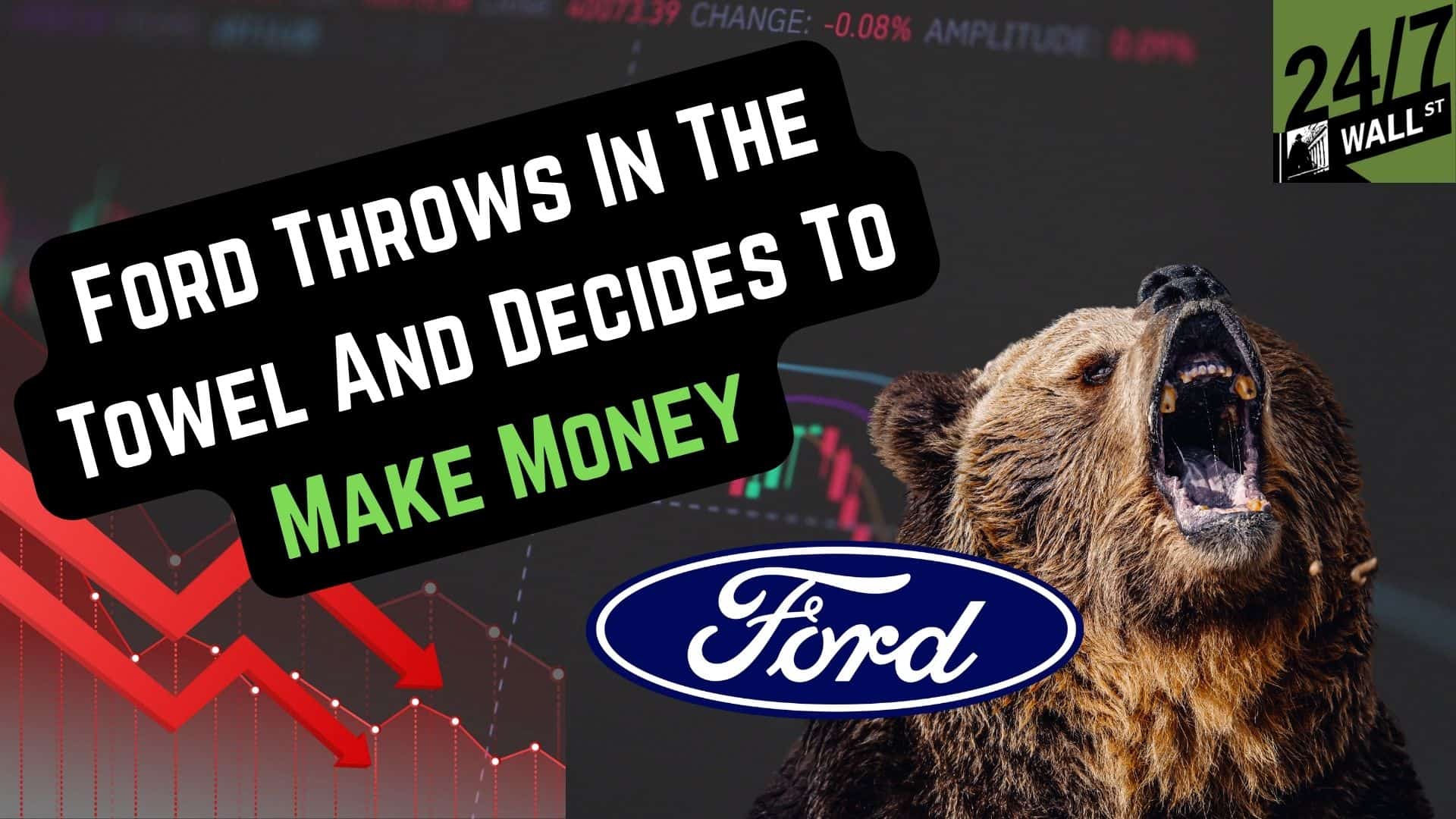Investing
Ford (NYSE: F) Throws In The Towel And Decides To Make Money

Published:
Last Updated:

Ford Has Been Losing Too Much On EVs
Doug McIntyre and Lee Jackson discuss Ford’s (NYSE: F) surprising decision to convert a Canadian EV plant into one that builds Super Duty trucks, reflecting a broader industry shift. Despite prior commitments to electric vehicles (EVs), Ford seems to be reverting to traditional gas-powered trucks, questioning the feasibility of widespread EV adoption. Concerns about charging infrastructure, battery performance, and consumer demand are leading to skepticism about the government’s EV goals. They also highlight the impact on investors, who prefer stable earnings from popular gas-powered vehicles over uncertain EV ventures.
It’s Going Back To It’s Roots To Make Money
Investors have to forget about yesterday in order to invest for tomorrow. That’s why the smart money is already looking at three stocks that could be The Next Nvidia. We’re making the report available for a limited time by clicking here now.
Transcript:
So Ford did something very odd today.
They took a Canadian EV plant and said, no, no, no, no, no.
We’re not going to do that.
We’re going to convert it for approximately three billion dollars into a plant that builds the super duty trucks.
Now, I don’t know if you’ve seen a super duty truck, but take a Ford F-150 pickup, add about a ton to its weight, extra wheels in the back, a bigger engine, some guy who’s a plumber or whatever can haul around 20,000 pounds worth of stuff.
And listen, it shows you what’s happened to Ford and some other companies.
Ford said it would put $30 billion into EVs.
Farley, their CEO, said last year that by the end of last year, they’d be at the level where they could produce 600,000 EVs a year.
They launched their F-150 Lightning, which was supposed to be the big, big deal, because the F-150 gas powered truck is the top selling vehicle in America, and it has been for four decades.
What happened?
You take a plant that was going to build all your EVs and say, no, no, no.
It’s going to build these massive gas guzzling trucks instead.
Well, with all due respect, I live in the South.
I see those trucks everywhere.
In addition to every model of F-150 you can imagine.
And yeah, I mean, the mere thought that they even…
Whoever sits down in a C-suite board meeting and says, look, you know, we can use our best product and bastardize or cannibalize it into an EV is nuts.
Because, you know, a lot of the people that drive an F-150 are hardworking, you know, blue collar Americans.
And they’re never going to buy an electric model.
No, they aren’t.
So I have to tell you something.
We’re starting to see this.
You’re starting to see assembly lines for EVs either being shut down.
I’m going to make a prediction.
More and more of these factories are going to be repurposed back to gas engine cars or hybrids.
The myth that half the cars sold in the United States would be EVs five years from now, which is what the government was talking about and all that.
Car companies were yakking about, that’s not going to happen.
If you look at people who thought about an EV, I’m worried I can’t find a charging station.
I’m worried how long it takes to charge.
I’m worried how far does it go on a charge.
What if it’s a cold winter?
I’m worried that in the wintertime, the full charge doesn’t go in.
I’m worried because they eat through tires faster than gas power.
There was a survey recently, a month and a half ago, that said about a third of the people who own an EV said that when they get rid of it, they’re going to buy another.
Yeah.
Yeah.
And there’s always the person that, that, they somehow want to be climate friendly or eco-friendly and they’re thinking, and everybody wants a clean environment.
I mean, Teddy Roosevelt was the first one that started pounding the table on the clean environment.
And that was over a hundred years ago.
But there’s one thing about trying to be, do good things for the environment.
And there’s other fools errands like this, where you chase something that there is no infrastructure for.
Also, if you look at people who are investors, either institutional or individual, they look at car companies as nice places to get yields, to get steady earnings.
The minute that you start to change that into something that’s where you’re selling EVs and you don’t know how well they’re going to do.
If I buy a car stock, I want to know that they sell a lot of the cars that people want to buy today.
I want to make sure that my payout doesn’t go away because the money went toward building some crazy EV plant.
So I think what’s happening is the car industry is also tacking back to where it is where Wall Street likes the stocks.
Let’s face it: If your money is just sitting in a checking account, you’re losing value every single day. With most checking accounts offering little to no interest, the cash you worked so hard to save is gradually being eroded by inflation.
However, by moving that money into a high-yield savings account, you can put your cash to work, growing steadily with little to no effort on your part. In just a few clicks, you can set up a high-yield savings account and start earning interest immediately.
There are plenty of reputable banks and online platforms that offer competitive rates, and many of them come with zero fees and no minimum balance requirements. Click here to see if you’re earning the best possible rate on your money!
Thank you for reading! Have some feedback for us?
Contact the 24/7 Wall St. editorial team.